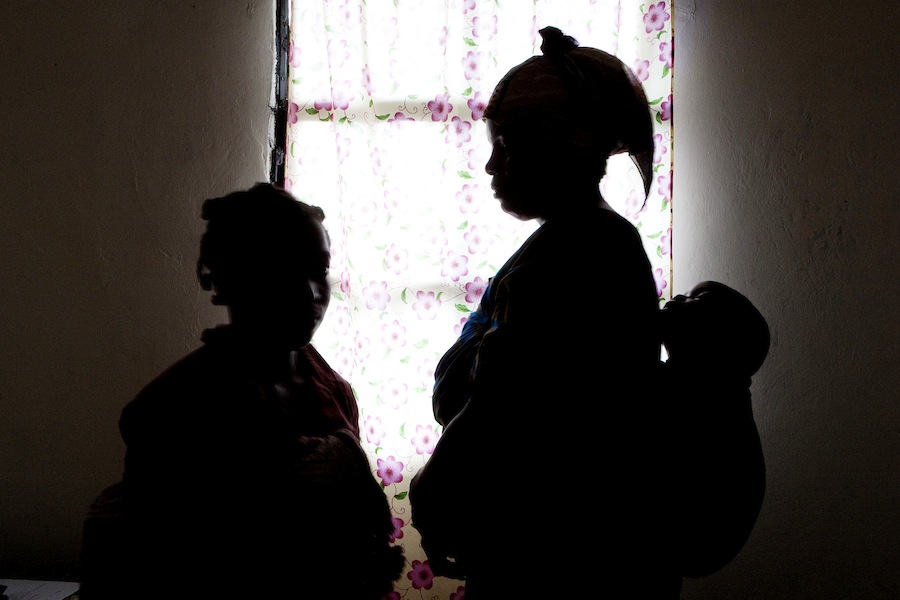In 2005 alone, some 45,000 women were raped in the South Kivu region of the Congo, according to the UN. But rape does not begin or end with an incident of sexual violence, it tears apart families and destroys lives.
By Lisa Richlen and Oscar Olivier

It is well known that rape is a weapon of war. What is perhaps less understood is what this actually means for the women who are raped. Perhaps no country exemplifies this better than Congo where the scope of violence, sexual and otherwise, is staggering.
The current round of unrest in Congo began in 1998. According to some estimates, since that time over five million people have been killed or died of starvation and disease. One of the regions most affected is South Kivu, and within this region, members of the Banyamulenge ethnic group are on the receiving end of most of the violence. Women are among the primary victims; indeed, the UN estimates that in 2005, approximately 45,000 women were raped in South Kivu.
But behind each number lies an individual whose life is destroyed by rape.
Take the case of Zanika, now 30 years old. At the age of 13 she was brutally raped by a group of men. The attack destroyed her reproductive system and left her with lasting back pain. However, the rape precipitated a series of additional traumas that follower her to this day. Zanika was and continues to be stigmatized by her community. Damaged by the incident, she withdrew from the public eye and quit school. Furthermore, starved of love and affection, she became involved in a lesbian relationship. A serious taboo in Africa, this was ‘discovered’ and led the arrest of her and the others who were involved by the Congolese police. While in prison, she was tortured, further compromising her already poor physical state. Today, Zanika lives in Nairobi. Due to recurrent back problems, it is difficult for her to work and she is forced to rely on the generosity of others. Nor can she foresee any hope of starting a family. Indeed, this one incident of rape completely changed the trajectory of Zanika’s life.
Or, take the case of Munezero, now 37, who also belongs to the Banyamulenge ethnic group in the South Kivu region of Congo. When rebels entered her village, she and four of her children were separated from her husband and one additional child. They have not been in contact since then. She and her oldest daughter, who was 14 years old at the time, were both raped and Munezero and the children who remained with her were forced to flee. Munezero has recurring back problems that make prolonged physical labor (the only work available to refugees in most cases) difficult. Her daughter fared even worse; following their arrival in Nairobi, she was hospitalized for three months and her uterus was removed. The incident led to the disintegration of the family and of Munezero’s ability to care for her remaining children. Today she struggles to find sufficient work and her daughter is working in prostitution.
As these cases demonstrate, rape in the context of war does not begin and end with an isolated incident of sexual violence. Rather, it tears apart families, causes tremendous physical injury, results in social isolation and exclusion and forever stigmatizes the victims. Furthermore, rape often precipitates further sexual exploitation; those who have undergone acts such as these are more likely to be repeatedly targeted for rape again in their home countries, in countries of transit and in host countries; many begin working in prostitution and others are put in situations where they are coerced into engaging in sexual relations for food, shelter or basic protection.
However, it is not only the women who find themselves in situations of danger, those who defend and help them – and talk about it – are targeted as well. This is the situation of Dr. Denis Mukwege, the founder of the Panzi hospital near Bukavu, which is South Kivu’s capital city. He specializes in the treatment of women who have been gang-raped and is an outspoken critic of the Congolese government. As a result of his work, he narrowly survived an assassination attempt in November. As someone who has operated on thousands of such women, he, perhaps, best understands the impact of rape as a tool of war.
“We talk about them as numbers and we don’t fully appreciate that they are individual human beings who have each been through a horrifying and destructive experience,” he said, adding that the violence and endemic rape continues “because of indifference on the part of our government and inaction by the international community,” perpetuated by the disconnect enabled by the fact that it is happening “to someone else. But really, it happened to one of us.”
Two months after the assassination attempt against him, Dr. Mukwege returned to the his hospital in the Congo to treat the endless stream of women in need of help.
Three months ago, rebel troops entered South Kivu’s largest city, Goma, wreaking havoc and displacing tens of thousands more.
The cycle continues.
Lisa Richlen volunteered with HIAS Refugee Trust Kenya during the month of November. Oscar Olivier is a Congolese refugee residing in Israel. Both are social activists working on behalf of refugees in Israel.
